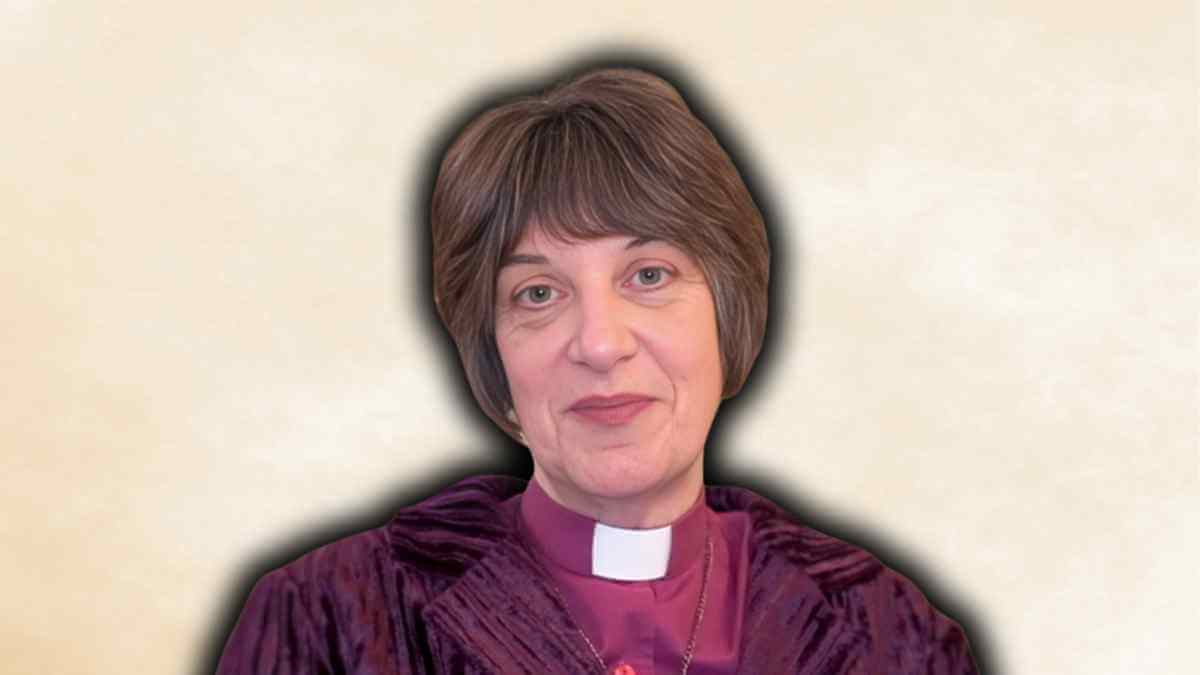Rachel Treweek: A Trailblazing Bishop Transforming the Church of England

Rachel Treweek’s journey towards becoming one of the most influential figures in the Church of England began long before she wore the robes of a bishop. Born in 1963, her formative years were marked by a love of language, communication, and service to others. Her keen interest in human connection led her to study linguistics and speech and language therapy at the University of Reading. This academic pursuit was more than a simple career choice; it became a powerful tool that shaped her approach to leadership and pastoral care. Her early career as a speech and language therapist gave her the ability to listen attentively and communicate with clarity and compassion—skills that would later prove essential in her ecclesiastical work.
Treweek’s decision to leave her profession and enter ministry reflected a deep personal calling rather than a conventional career move. She trained for ordination at Wycliffe Hall in Oxford, an institution known for equipping future clergy with theological depth and pastoral sensitivity. This transition was not merely about changing professions; it was about embracing a life of faith, service, and commitment to building bridges in a changing society.
Ordination and Early Ministry
Rachel Treweek was ordained as a deacon in 1994, a period when the Church of England had only recently opened the priesthood to women. Her ordination symbolised more than personal achievement; it represented a growing inclusivity in a centuries-old institution. Over the following years, she served faithfully in parish ministry, demonstrating a rare combination of intellectual insight and pastoral warmth.
Her early clerical work gave her firsthand experience of the challenges faced by diverse communities, from urban parishes to suburban congregations. Treweek’s approachable style and her ability to make theological concepts relatable allowed her to connect with people of all backgrounds. She was not content with maintaining tradition for tradition’s sake; she sought to make faith meaningful in modern society.
Rise to Senior Leadership
Rachel Treweek’s dedication and natural leadership soon brought her into senior church roles. In 2006 she was appointed Archdeacon of Northolt, where she worked to strengthen parishes and support clergy through the complexities of ministry. In 2011 she became Archdeacon of Hackney, overseeing one of the most vibrant and diverse areas of London.
These roles honed her skills in administration and pastoral oversight. She became known for encouraging innovation, nurturing young leaders, and advocating for the marginalised. Her work as an archdeacon displayed her belief that the church should not simply exist as a historical institution but must actively respond to social change and the spiritual needs of contemporary life.
Historic Appointment as Bishop of Gloucester
The turning point in Rachel Treweek’s ministry came in 2015 when she was appointed Bishop of Gloucester. This was a landmark moment in the history of the Church of England: she became the first woman to be appointed as a diocesan bishop and, subsequently, the first female bishop to sit in the House of Lords. Her consecration on 22 July 2015, led by the Archbishop of Canterbury, was both a personal milestone and a defining moment for the Anglican Church.
As Bishop of Gloucester, Treweek inherited a diocese with a rich history and a strong commitment to community engagement. From the outset, she demonstrated that her leadership would be both visionary and practical. She spoke passionately about inclusion, justice, and the need for the church to be a place where everyone—regardless of background, gender, or circumstance—can find belonging and purpose.
Advocacy for Justice and Inclusion
Rachel Treweek’s influence extends well beyond ecclesiastical boundaries. In the House of Lords, she serves as one of the Lords Spiritual, where she contributes to debates on issues such as social justice, the criminal justice system, and the welfare of women and children. Her speeches often highlight the need for compassion and fairness in public policy.
One of her notable campaigns is “Fighting for Women’s Justice,” which calls for reform in how women are treated within the justice system. She has also championed the “#Liedentity” initiative, aimed at challenging the pressures of body image and identity faced by young people. By addressing these pressing issues, Treweek underscores the role of the church as an advocate for society’s most vulnerable and a voice for those who might otherwise go unheard.
Personal Faith and Pastoral Heart
Behind Rachel Treweek’s public achievements lies a personal faith rooted in prayer, scripture, and a deep sense of God’s presence. She often speaks about the importance of authentic discipleship—living out one’s faith not just in church but in every sphere of life. Her pastoral approach is marked by humility and an ability to listen deeply.
Treweek is married to Guy Treweek, himself a priest in the Church of England, and together they embody a shared vocation of service. Their partnership reflects the modern reality of ministry, where both men and women can serve equally and collaborate in shaping the church’s mission.
Impact on the Church of England
Rachel Treweek’s leadership has left a lasting mark on the Church of England. By breaking historic barriers, she has inspired countless women to pursue ordained ministry. Her example proves that leadership is not defined by gender but by character, vision, and a commitment to the Gospel.
Under her guidance, the Diocese of Gloucester has strengthened its outreach, fostered interfaith dialogue, and created new opportunities for community engagement. She encourages churches to look beyond their walls and engage with the realities of modern society, from environmental concerns to the challenges of poverty and inequality.
A Vision for the Future
Rachel Treweek continues to shape conversations about the future of the church in a rapidly changing world. She believes that the church must remain rooted in its core faith while being open to new forms of worship, digital engagement, and fresh expressions of ministry. Her leadership style, combining tradition with innovation, provides a model for how faith communities can remain relevant and transformative in the twenty-first century.
Her life’s work speaks to a deep conviction that faith should be lived out in action. Whether advocating for prison reform, supporting young people in their struggles with identity, or encouraging clergy and laypeople alike to embrace their calling, she demonstrates that Christianity is not merely a set of beliefs but a living, active force for good.
Conclusion
Rachel Treweek stands as a remarkable figure in the modern Church of England—a pioneer whose achievements have reshaped the landscape of Anglican leadership. From her early days as a speech and language therapist to her historic appointment as Bishop of Gloucester and her influential role in the House of Lords, she has combined compassion with courage, tradition with progress. Her ministry is a testament to the power of faith in action and the transformative potential of inclusive, visionary leadership.
Her story continues to inspire not only those within the Anglican tradition but all who believe in breaking barriers and working for justice. Through her words, actions, and unwavering commitment to equality and service, Rachel Treweek has become a symbol of hope and a guiding light for the church and society alike.



